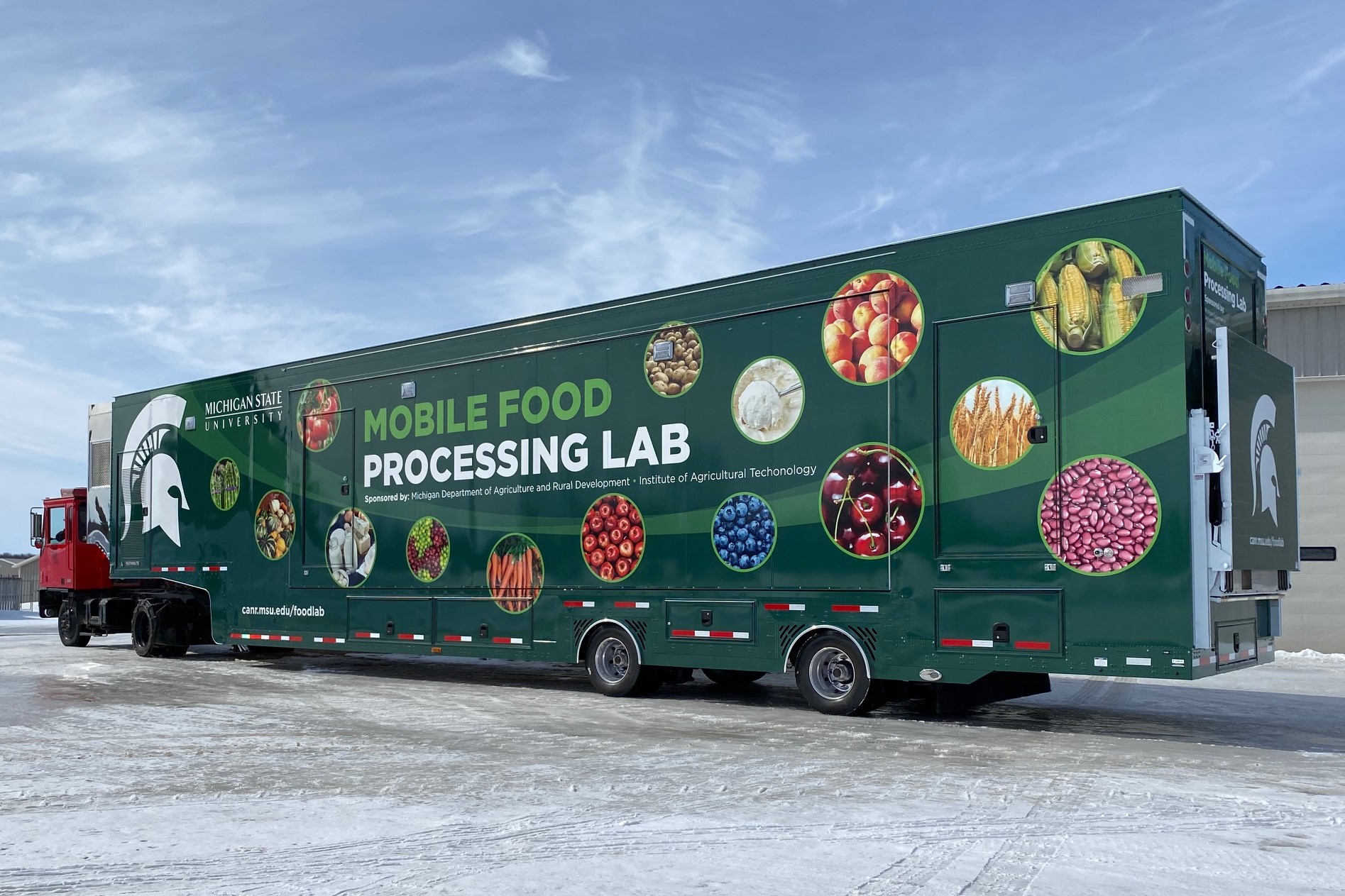MSU awarded $500,000 USDA-NIFA grant to support food processing program
The College of Agriculture and Natural Resources receives grant supporting certificate program that develops skilled food processing and safety operators.

Michigan State University (MSU) has been awarded $500,000 over the next five years to support the food processing certificate program offered through the Institute of Agricultural Technology (IAT) in East Lansing and at community college partners.
The work at MSU is funded by the U.S. Department of Agriculture through the National Institute of Food and Agriculture (NIFA) and is part of a $4.8 million investment to support 12 projects that will offer workforce training by community colleges. These awards are made possible through the Agriculture and Food Research Initiative’s Agricultural Workforce Training.
There are roughly 3,280 food processing facilities and food warehouses in Michigan, according to the Michigan Department of Agriculture and Rural Development (MDARD). The growing need to fill operator and middle management positions with skilled employees has continued to be an issue for the state.
“One of the challenges within the food processing industry is finding qualified personnel. Through this program, we’re going to help fill that pipeline,” said IAT Director Randy Showerman. “We’re also working on further curriculum development with industry partners to address their specific needs.”
Early discussions began in 2013 between MSU and food processing industry stakeholders. Initial funding was provided by MDARD to help develop a food processing program, renovate a campus food processing lab and build the first mobile food processing lab.
Kelly Millenbah, senior associate dean for the College of Agriculture and Natural Resources (CANR), has been leading the initiative along with Darrell Donahue, chair of the Department of Biosystems and Agricultural Engineering; Nancy Turner, chair of the Department of Food Science and Human Nutrition (FSHN); Jeff Swada, director of the undergraduate food science program; and Showerman with IAT.
Food processing certificate program
The two-year IAT Food Processing, Technology and Safety certificate program, launched in fall 2019, trains students on the processes and technologies used to convert commodities into consumable food products. Graduates of the program receive an MSU certificate and associate degree from one of the IAT community college partners.
The food processing program is available at MSU in East Lansing, as well as at community college partners: Delta College in University Center, Kellogg Community College in Battle Creek, Muskegon Community College in Muskegon, and Wayne Community College District—Downriver in Taylor. The NIFA funding supports ongoing program expansion.
“Our community college partners are a key link in the program,” Showerman said. “They are on the front lines of addressing labor needs in their communities.”
Mobile food processing lab
A mobile food processing lab is part of the program and will offer hands-on experiences to students at community college locations, ensuring they have the skills necessary to perform effectively in the food processing industry. The completed mobile lab will arrive on campus this summer with a plan to visit community college partners as soon as possible.

Donahue and Swada provided critical expertise throughout the design of the trailer, and the entire team provided input on the certificate program curriculum. Swada worked closely with Featherlite, the company that constructed the mobile food processing lab, to ensure the equipment and layout met instructional needs.
“We wanted to mirror what students would see in the industry once they graduate, just at a small scale. That meant the whole trailer was built to demonstrate the needs for food grade processing,” Swada said. “We also needed to make sure the trailer was meeting the demands of the curriculum for the certificate program at the same time as the curriculum was being developed.”
All the equipment in the mobile processing lab was specially developed based on the scale and mobility requirements of the trailer and to allow for versatility. In addition to the mobile food processing equipment, the air filtration, electrical, compressed air, steam and water systems also needed to be custom-made.
Additional mobile labs are planned for development as financing is secured.
Workforce development
“Hands-on training helps with critical thinking, and those kinds of skills and thought processes will help students really excel in their careers,” Turner said. “Another thing the certificate program does is introduce students to what food science is. For some students, that introduction may provide the impetus to pursue a bachelor’s degree.”
Michigan is the second most agriculturally diverse state in the U.S., producing more than 300 agricultural products. The Food Processing, Technology and Safety program can support the growing food processing industry, as well as ongoing development of food systems bringing viable jobs to people in the state.
“The demands created by changes in current food technologies, standards and safety requirements mean that meeting the personnel needs of these expanding businesses is contingent on availability of an educated and skilled workforce,” Millenbah said. “This educational program has the potential for extensive impact on the workers, employees and their families in the Great Lakes region.”



 Print
Print Email
Email



